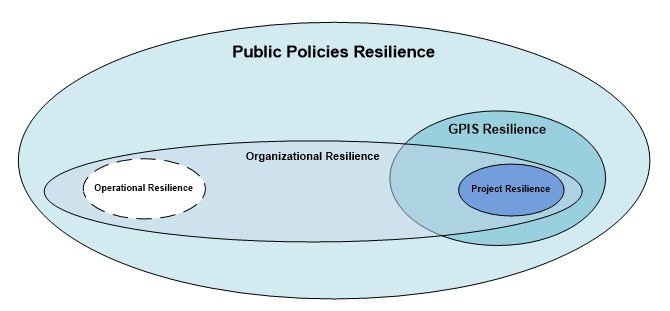Let’s talk about public projects!
SERIES ARTICLE
By Stanisław Gasik
Warsaw, Poland
Introduction
Resilience is the ability to adapt, regain balance, and function effectively in the face of adversity, stress, or sudden change. It applies to individuals, organizations, and social or economic systems (e.g., Wu et al., 2013).
State resilience refers to a state’s ability to adapt, counteract crises, and rebuild aftershocks such as natural disasters, economic crises, military threats, or cyberattacks (OECD, 2019). A strong, resilient state not only responds to threats but also prevents them and strengthens its structures for the future. The features of a resilient state include institutional stability, economic resilience, internal and external security, infrastructural resilience, and efficiency in crisis response.
The state serves as the primary vehicle for implementing public policies and delivering services that address collective societal needs. Every action of the state apparatus results from at least one public policy, whether documented or undocumented. The state functions as a portfolio of public policies, meaning its resilience depends on the resilience of its public policy portfolio and the institutions that implement these policies.
The implementation of any new public policy, distinct from the continuation of a previous one, requires small or large changes in public administration processes. Implementing change is equivalent to executing a project. This perspective allows us to view the state as a project-dependent organization (Archibald, 2003). Moreover, the aim of many policies, such as infrastructure ones, is to provide specific products: buildings, roads, airports, etc. This is achieved through the implementation of projects. Therefore, an essential component of state resilience is the Governmental Project Implementation System (GPIS) (Gasik, 2023a, 2025). Thus, ensuring state resilience requires ensuring the resilience of its GPIS.
This article describes key principles for ensuring state resilience, with a particular focus on project-related aspects. To achieve state resilience, the following overlapping components are necessary:
- Public Policy Resilience
- GPIS Resilience
- Organizational Resilience
- Project Resilience
- Operational Resilience (not covered in this article, as projects do not participate directly in this component)

Figure 1 schematically presents the components of state resilience.
Figure 1. Components of State Resilience
Public Policy Resilience
Public policies should be resistant to adverse external stimuli. This resilience can be achieved by designing and implementing policies in a specific way.
More…
To read entire article, click here
Editor’s note: This article series is related to the management of public programs and projects, those organized, financed and managed by governments and public officials. The author, Dr. Stanisław Gasik, is the author of the book “Projects, Government, and Public Policy”, recently published by CRC Press / Taylor and Francis Group. That book and these articles are based on Dr. Gasik’s research into governmental project management around the world over the last decade. Stanisław is well-known and respected by PMWJ editors; we welcome and support his efforts to share knowledge that can help governments worldwide achieve their most important initiatives.
How to cite this paper: Gasik, S. (2025). GPIS as a Tool for State Resilience. Let’s talk about public projects, series article, PM World Journal, Volume XIV, Issue IV, April. Available online at http://pmworldlibrary.net/wp-content/uploads/2025/04/pmwj151-Apr2025-Gasik-GPIS-as-a-Tool-for-State-Resilience.pdf
About the Author

Stanisław Gasik, PhD, PMP
Warsaw, Poland
![]()
Dr. Stanisław Gasik, PMP is a project management expert. He graduated from the University of Warsaw, Poland, with M. Sc. in mathematics and Ph. D. in organization sciences (with a specialty in project management). Stanisław has over 30 years of experience in project management, consulting, teaching, and implementing PM organizational solutions. His professional and research interests include project knowledge management, portfolio management, and project management maturity. He is the author of the only holistic model of project knowledge management spanning from the individual to the global level.
Since 2013, his main professional focus has been on public projects. He was an expert in project management at the Governmental Accountability Office, an institution of the US Congress. He is the author of “Projects, Government, and Public Policy,” a book that systematizes knowledge about government activities in the area of project management.
He was a significant contributor to PMI’s PMBOK® Guide and PMI Standard for Program Management and contributed to other PMI standards. He has lectured at global PMI and IPMA congresses and other international conferences.
His web page is www.gpm3.eu.
To view other works by Dr. Gasik, please visit his author showcase in the PM World Library at https://pmworldlibrary.net/authors/stanislaw-gasik-phd-pmp/









